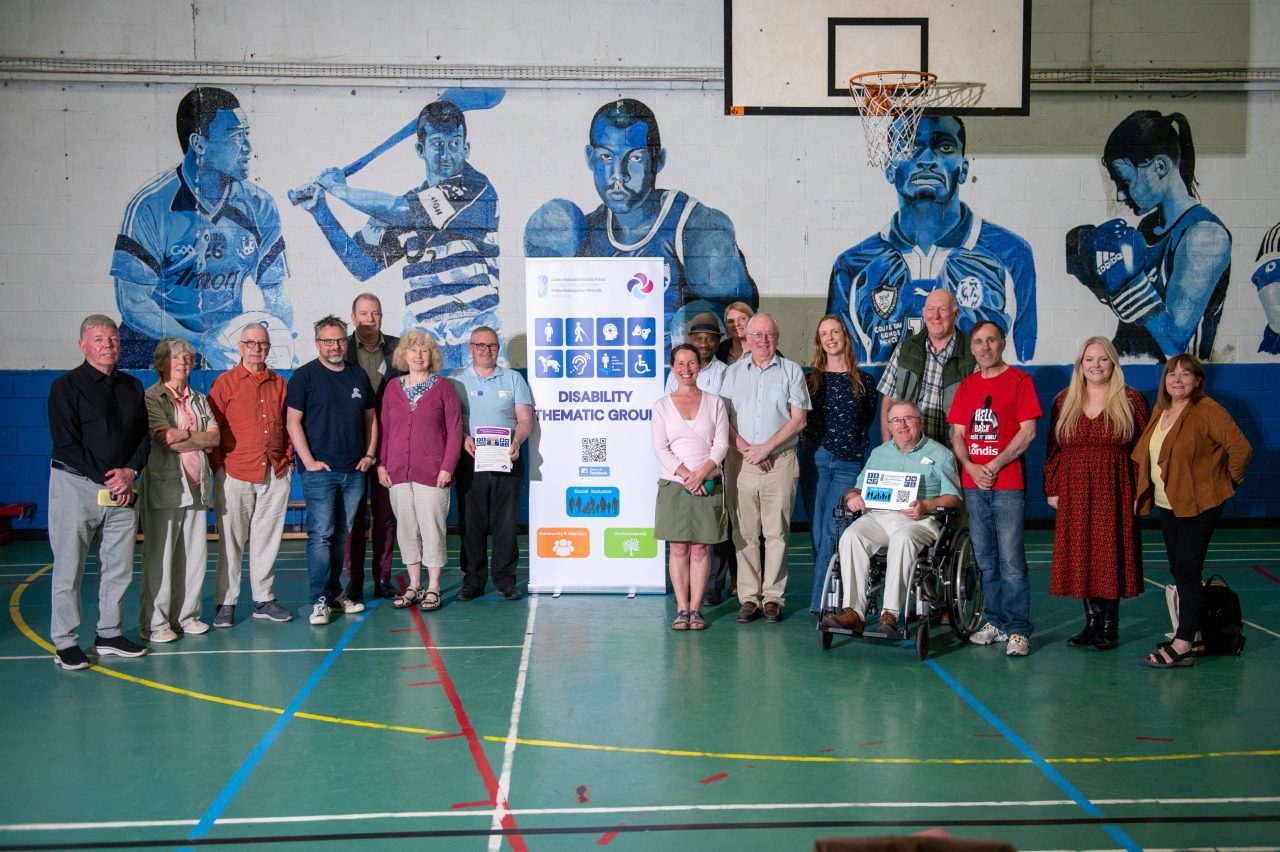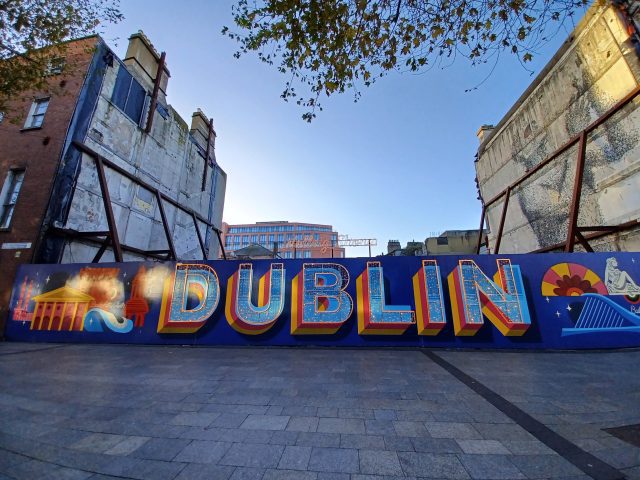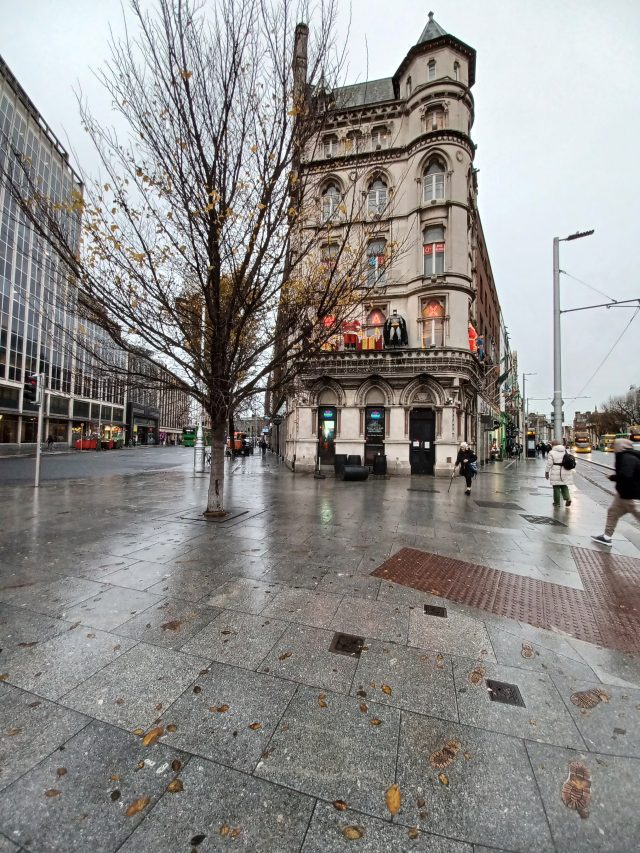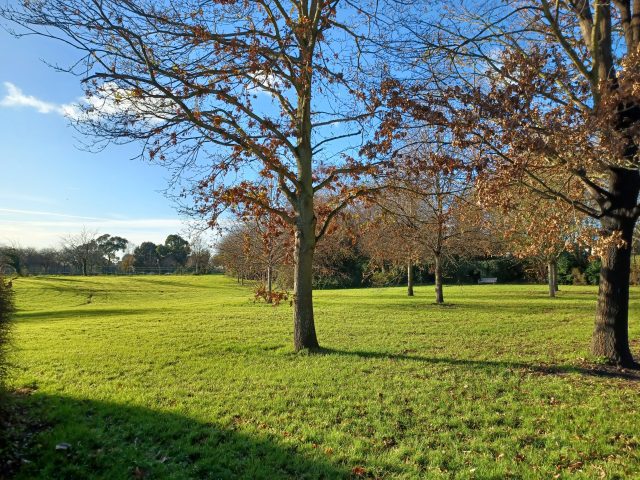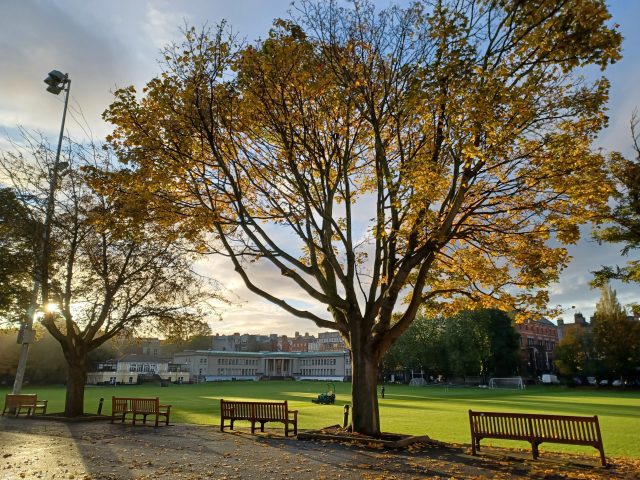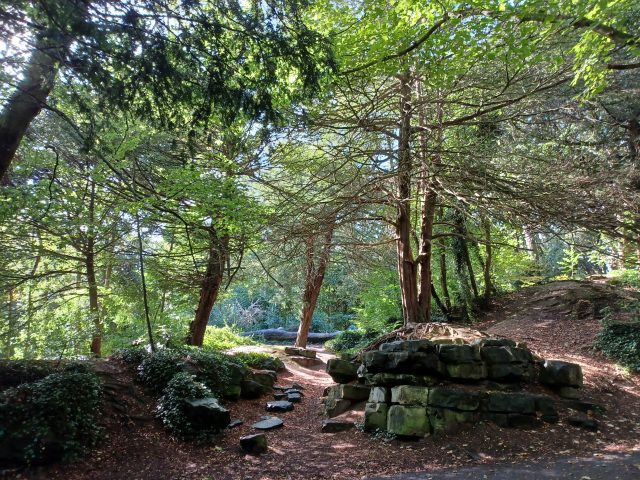A summary of the PPN Plenary 25 May 2023 (with notes from the discussions and further information about the documents ratified, at the end of this update).
This year’s first Plenary, on 25 May 2023, in the gymnasium of Trinity Comprehensive in Ballymun, was a great success. Many thanks to our hosts, Ballymun Book Exchange, Ballymun Scouts and Ballymun Fitness, who provided us with a venue for the Plenary, which we were very happy about.
The Plenary opened with songs from the Latvian Society of Ireland choir, “eLVe”. The singers were beautifully dressed in traditional clothes and wore flowers in their hair, and everyone said it was a fantastic beginning to the meeting. The choir was led by its artistic director, Inguna Grietine-Darzina, who is also a member of the PPN’s Migrant Thematic Group, and the choir simply set the mood for the evening.
John Redmond, from the Secretariat made some opening remarks. He thanked the hosts for the evening, he thanked Franzi O’Donnell who is the manager of the PPN Host, Dublin City Volunteer Centre, and the facilitators for the event: Adrienne Boyle, Clare O’Connor, Stephen Rourke and Kevin Delaney. John also thanked the PPN resource worker, Ruth Powell and he officially ratified several PPN documents, which you can read at the end of this update.
People then divided into the three pillars or colleges of the PPN: Community and Voluntary, Social Inclusion and Environment. There was a fourth group online, with the people who were joining the meeting virtually, and so all four groups discussed the following questions:
- Why do you stay involved in the PPN?
- What would help you participate more in PPN activities?
- What are some of the challenges for next year in this PPN?
You can read a summary of the answers to these questions at the end of this update.
The group came back together as one, and the meeting ended with some poetry from Peter Clarke of the Bealtaine Writers. It had been mentioned in groups, that the ability of art to provide a way for people to express themselves was described as “life-changing”. Peter read several his own poems, and again, everyone thought this was a great way to end the meeting, as it brought all pillars and colleges, online and in person participants back together before closing the for the night.
Refreshments were provided and people had time to chat, to meet old and new friends and to learn more about the other Member Groups in the network.
The next Plenary will be held on Thursday 30 November, from 7.00pm – 8.30pm at a venue to be confirmed (and online).
Please get in touch if your group or organisation would like to host the next Plenary and please also get in touch if you have any suggestions about how to improve the Plenaries and make them more interesting, more fun, and more relatable.
A summary of the responses to the four questions raised in small group discussions.
- What are some of the best impacts of the PPN, in your experience?
A chance to connect with other organisations. / PPN empowers people and provides more access to local democracy than is possible in an individual group./ “The PPN can give access to people with power, and the weight of the PPN behind you means things might happen” (Cathedral Street and the Mansion House are examples of this)./ opportunity to understand the inner workings – break down the lingo. Networking and clicking in with people who have vast knowledge. Getting to know the wider city./ great that the public can influence the decisions being made – being part of the smaller groups you can be heard more effectively./
It’s great to have the chance to engage with the political process./ Providing an opportunity for people with lived experience to be involved in decision making and planning benefits everybody. / Participation within the SPCs is important. / Felt like there was a community once I was on board – less isolated – little communities, how they connect, similarities, shared interests/ demystification of the systems and processes. The longer you are in the PPN, the more benefits you can see.
The newsletters provide excellent information about various developments taking place in Dublin City and about forthcoming community and environmental events, training programmes and funding possibilities. /Great to find out what’s going on via the newsletter and update meetings and so on./ newsletter is so good it’s full of information and there’s an immediate response. We don’t feel like we are in a bureaucratic gathering of people in the PPN. It’s a diverse mix of people which broadens the mindset. More inclusive benefits are that we can connect with other groups directly. Further down the line, it would be great to have linkage groups. / It’s FREE! Usually, you have to pay for this quality of information
It is a very good mechanism for bringing together the voices of the community/voluntary, social inclusion and environment sectors onto influencing and decision-making structures such as SPCs and JPC./ Working together benefits everyone./ Shared Knowledge, shared motions, shared resources. Ability to contribute to wider change through wider coordination.
It has created opportunities for people from different parts of Dublin City to come together and to share their experiences and insights.
It has the potential to continue to bring together groups with similar interests and concerns. / The network and power of the PPN can be used to lobby and organise on specific issues.
It has made people in the community/voluntary, social inclusion and environmental sectors more aware of how local government works and the various structures within local government (such as SPCs, JPCs, LCDC)
- Why do you stay involved in the PPN?
Its constantly evolving. /It doesn’t have an end – were part of the start up process but it will live on after we’ve finished. /Cross community connections. /We’re in a great place now to address future problems
To find out more about what is happening across a very wide range of groups and organisations in Dublin City
To try and influence policies and programmes of organisations such as DCC, especially in relation to environmental issues and concerns.
To make Dublin City more environmentally friendly, greener and more sustainable into the future
Because I believe in participative democracy and the need to have strong participative democracy structures (such as PPNs) as well as the more traditional representative democracy (through which people vote in TDs, Councillors and MEPs every 5 years). / It is truly participative democracy – make it more easily understood how to get involved
It is an interesting and unique way to bring together approximately 1,000 different groups which are located in the Dublin City area./ There is strong belief in the potential of the PPN to drive positive change.
Social support.
The PPN can provide practical solutions within communities that will work. Community workers and volunteers are best placed to speak to what their community needs. Sense of Community. Shared visions / Networking/ Vehicle for change
“One of our motivations was to connect with the groups on the ground – we do it internally – informally mostly – reach beyond the immediate members – we develop most of our training based on the feed of knowledge and needs on the ground. also coming from own perspective and how the connections with the council – talking to friends about how this works. Perception around local authorities. Eg high level of dysfunction with low level of support from LA – PPN can connect with the system – analogy of people shouting at the TV as if they can be heard – the ppn allows people to get out of the armchair!”
“I want to have an impact and so does everyone else, people are on the same wavelength”.
“I stay involved to make a difference, and the people, they have the same intentions and desire to change things”.
- What would help you participate more in PPN activities?
Structural change for more face-to-face engagement from reps into the community
find a way for reps to know more about what groups need on the ground.
Town Hall meetings were great. / If we could see those contributions from PPN member groups and PPN Representatives (on bodies such as SPCs and JPC) are having a real impact on the work and priorities of organisations such as DCC
That there is demonstrable evidence (possibly through case studies) that the work of the PPN is achieving real and tangible results (especially in relation to environmental/green issues).
More networking and more information sharing between the member groups of Dublin City PPN. There is some apathy, and this needs to be noted and dealt with.
Would continue to participate if the activities organised through the PPN are enjoyable and fun, as well as being educational and informative. Could we cover babysitting costs for example or the other costs of coming to meetings and using free time or work time to participate in the PPN?
Organisation of workshops and activities which look at new ways of dealing with difficult and seemingly intractable problems (such as housing, homelessness, cost of living in Dublin City, racism and discrimination being experienced by Travellers and migrants).
More action and outcome-focused work. Seeing the end actions – celebrating them, or the results of all the effort and work. / More accessible resources in easy English for all to understand.
We need Member Groups to share the work of the PPN within their own networks./ More lobbying and coordinated campaigning.
- What are some of the challenges for next year in this PPN?
There is a need to engage pro-actively with PPN friendly counsellors.
New SPC reps will need support to settle in. Can we cross pollinate pillars? We need to have a “succession plan” for next year.
Does the PPN have a role as mediator or responder to current public concerns for example, what is the PPNs view on the current protests against migrants?
Many practical solutions were suggested in this session as listed below.
- Shadowing
- Increased activity by member groups to share the workload around.
- Reps need to feedback to the member groups about what’s going on in the SPC meetings.
- Attract young Representatives – how to do this? Could we set up an engagement programme with schools and colleges? A public awareness campaign?
- Could the PPN “pay” its reps/linkage group members for the time spent on PPN work? Cover the costs of babysitting or other costs incurred?
- The LECP process is something all groups should be involved in.
- Prioritise two or three campaigns to lobby on; for example, seats in a local park.
- Remove the requirement to be a member of the PPN to access funding and grants. This would slim down the membership of the PPN and find out who is genuinely active.
- Help people to balance their commitment.
*Further suggestions: the LCDC should have reps from each pillar and be accessible to all groups for funding opportunities.
The PPN should give help for submissions. All submissions must be disability proofed by members of the DTG.
“We need to flood DCC with our amazing ideas”.
- Documents that were ratified at the Plenary held on Thursday 25 May, 2023 were:
- Draft constitution. First posted 17 November, 2022: ratified 25 May, 2023.
- Draft Plenary standing orders. First posted 17 November, 2022: ratified 25 May, 2023.
- Draft code of conduct. First posted 17 November, 2022: ratified 25 May, 2023.
- Draft expenses policy. First posted 17 November, 2022: ratified 25 May, 2023.
- Draft supervisory group TOR. First posted 17 November, 2022: ratified 25 May, 2023.
- Draft complaints procedure. First posted 17 November, 2022: ratified 25 May, 2023.
- Draft Reps Charter. First posted 17 November, 2022: ratified 25 May, 2023.
To read the draft documents, which are now ratified, please click here.
